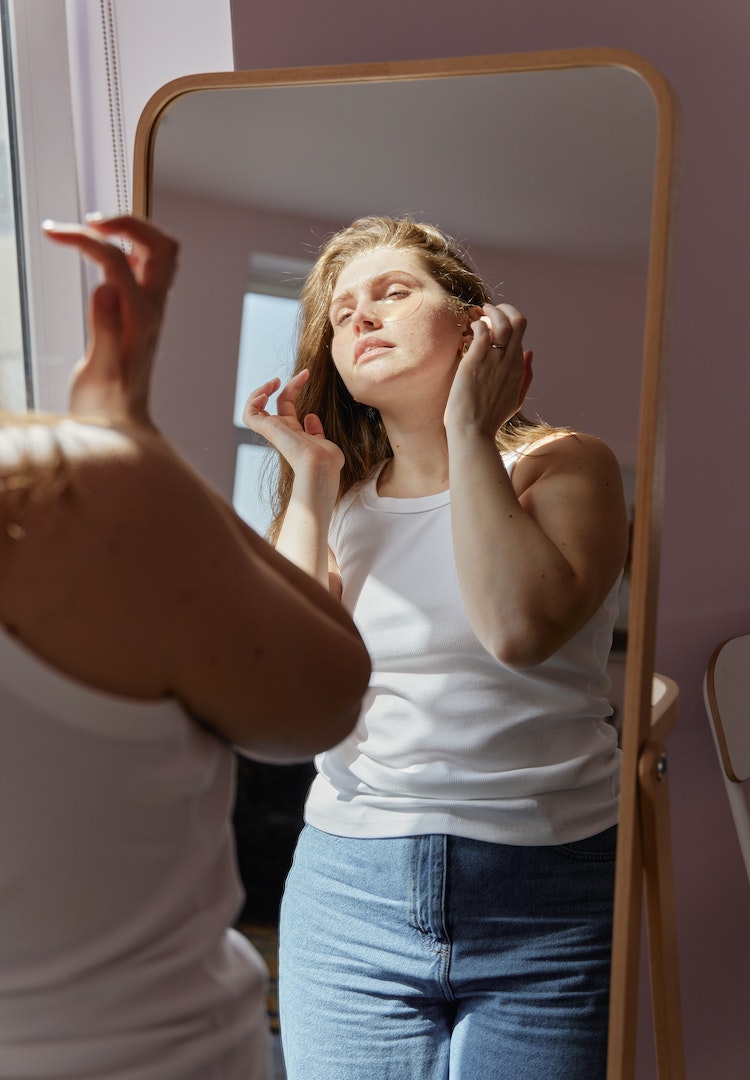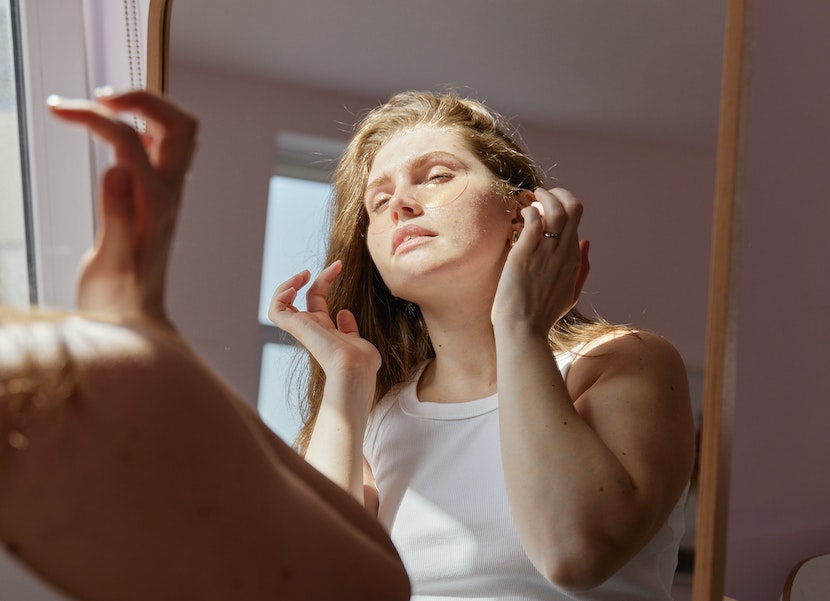How to cope when your family comments on your body
WORDS BY AMY FOCIC
“Find the opportunity to help that person to do better next time.”
Content warning: This article discusses eating disorders.
With the proliferation of body positivity and body neutrality movements over the last decade, it can sometimes feel like the intense body-shaming and fad diets that were emblematic of the early 2000s are behind us.
This is how it feels in my carefully cultivated online space, at least. As part of my attempts to improve my body image, I’ve spent the last few years vetting the media I consume and the people I follow online. No more influencers promoting diet teas for me, thank you.
Interested to hear how others navigate the world? Head to our Life section.
Sadly, my social media environment is not a reflection of reality. Diet culture and fatphobia are still alive and well. For most of our lives, we’ve been conditioned to believe that our worth is attached to our appearance. That messaging can take lots of time and work to unravel.
It seems par for the course then that we might encounter some unwanted body commentary from the people in our lives. Even though I’m at a place where my body image has improved, a back-handed or disparaging remark from a family member can still sting, whether they meant it that way or not.
To find out how to deal with receiving an unwelcome comment about your body, I reached out to Danni Rowlands, the Head of Prevention at The Butterfly Foundation.
Even well-intentioned comments can be harmful
Before I ask Danni about coping strategies, I want to know why comments about our bodies aren’t as helpful as the person commenting usually thinks they are.
“One of the biggest challenges is when someone makes a comment about our appearance or our body or our weight, whether it’s well-intentioned or intended to be positive, that makes us feel like we’re being watched – like our body is the most important thing or something that needs to be commented on,” Danni explains.
These statements, both positive and negative, can reinforce the idea that our worth is based on how our body looks. Danni tells me that for people with eating disorders, the impact of these sorts of comments can be detrimental.
“Through recovery, and even just experiencing an eating disorder, a body can look lots of different ways. Often, when people make comments about your appearance, your weight or your body – and again, [even if they’re] intended to be positive – it can draw that attention right back and it can be really triggering because it can suggest that our body represents how well you’re doing in recovery or how healthy you are.”
Danni also stresses that you can’t tell if someone is experiencing an eating disorder just by looking at them. These disorders are complex mental illnesses. Even if a loved one thinks they’re being encouraging or motivating by discussing your body, chances are it won’t land well.
Some practical tips
The way you respond in the moment to a family member’s remarks about your body can totally depend on how you’re feeling. After all, the way we feel about our bodies can fluctuate from day to day.
“Sometimes we might be having a really strong, positive day and we feel like we could challenge what’s been said, or we might be able to politely say to that person ‘I’d prefer if you don’t comment on my body’ and actually make a direct comment back. But more often than not it can throw people and make people feel quite uncomfortable,” Danni says.
No matter how you’re feeling when a remark is made, pausing for a breath before you do anything can be helpful. “Absolutely take a breath if a comment has been said to you because it can be quite anxiety-provoking to have somebody make a comment and we [can] react really quickly.”
Then, depending on how you’re feeling, you could choose to respond in a few ways. If you’re having a positive body image day, you might have the ability to respond to the person and set a boundary. Danni suggests being polite but firm. For example, you might say, “Thanks, but I’d prefer it if you don’t comment about my body.”
Or, if you’re feeling up to it, Danni suggests “I’m more than my body, it’s really not appropriate to talk about me that way.” What’s important is that your response is in your own words and you feel comfortable with it. If you know you’ll be around family members who are prone to making comments, you might pre-prepare some ideas of what you could say.
If you don’t feel like responding in the moment, you could contact your family member after the fact to explain how their words impacted you. “Find the opportunity to help that person to do better next time,” Danni suggests.
But sometimes it isn’t worth the effort on your part, and that’s okay. There might be a trusted person in your support network who could do the hard yards of speaking with your family member for you.
Danni stresses the importance of taking care of yourself when these situations arise because they can be triggering. Maybe you have a soothing mantra you repeat to yourself, a journaling practice, or you could listen to your favourite music – whatever self-care looks like to you.
At the end of the day, what another person has to say about your body is not your problem. They could be projecting their own body image issues or a lack of understanding about eating disorders. Trying to approach them with compassion is important, but as Danni puts it, “there’s no right or wrong in that moment”.
If you’re struggling with body image issues or eating disorders, you can call the Butterfly National Helpline at 1800 33 4673 for free and confidential support, or email or chat online here.













